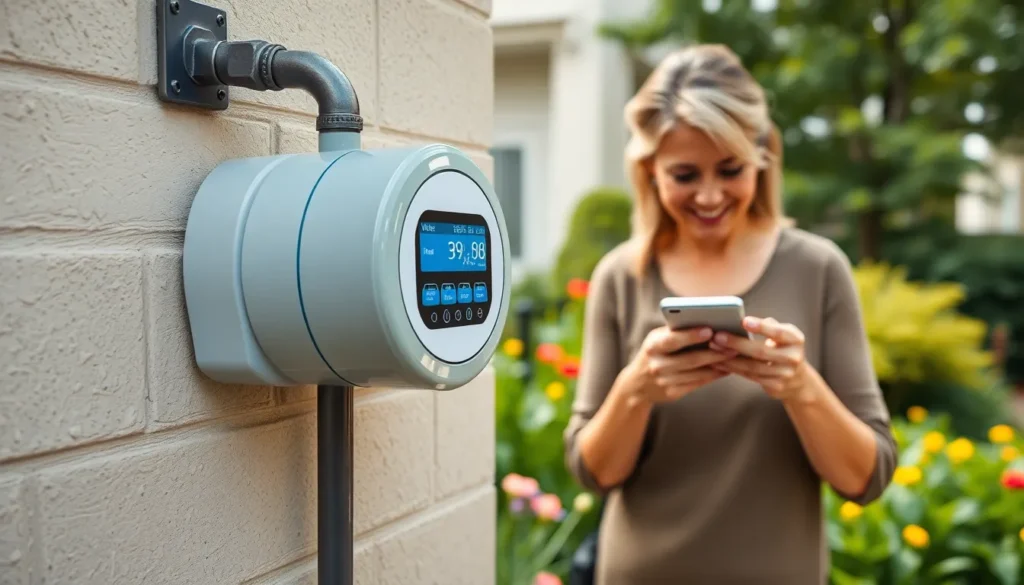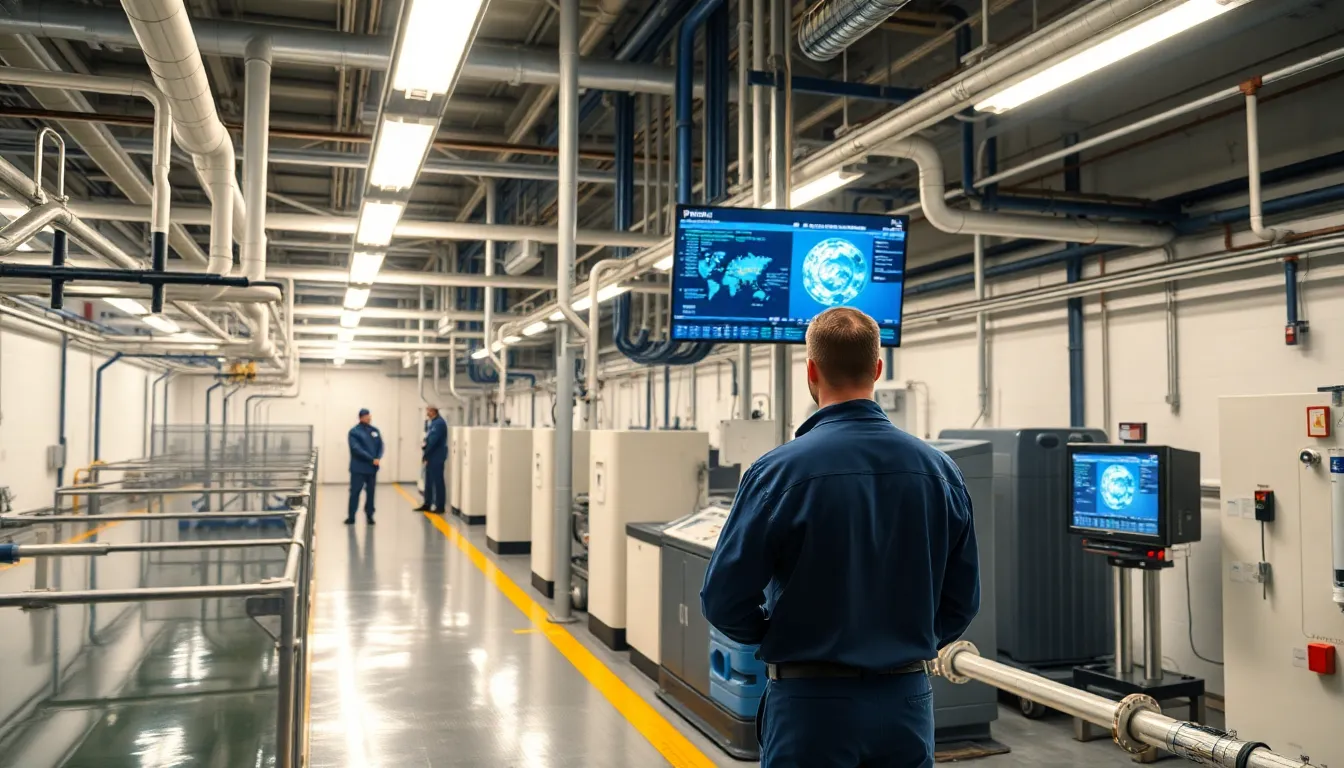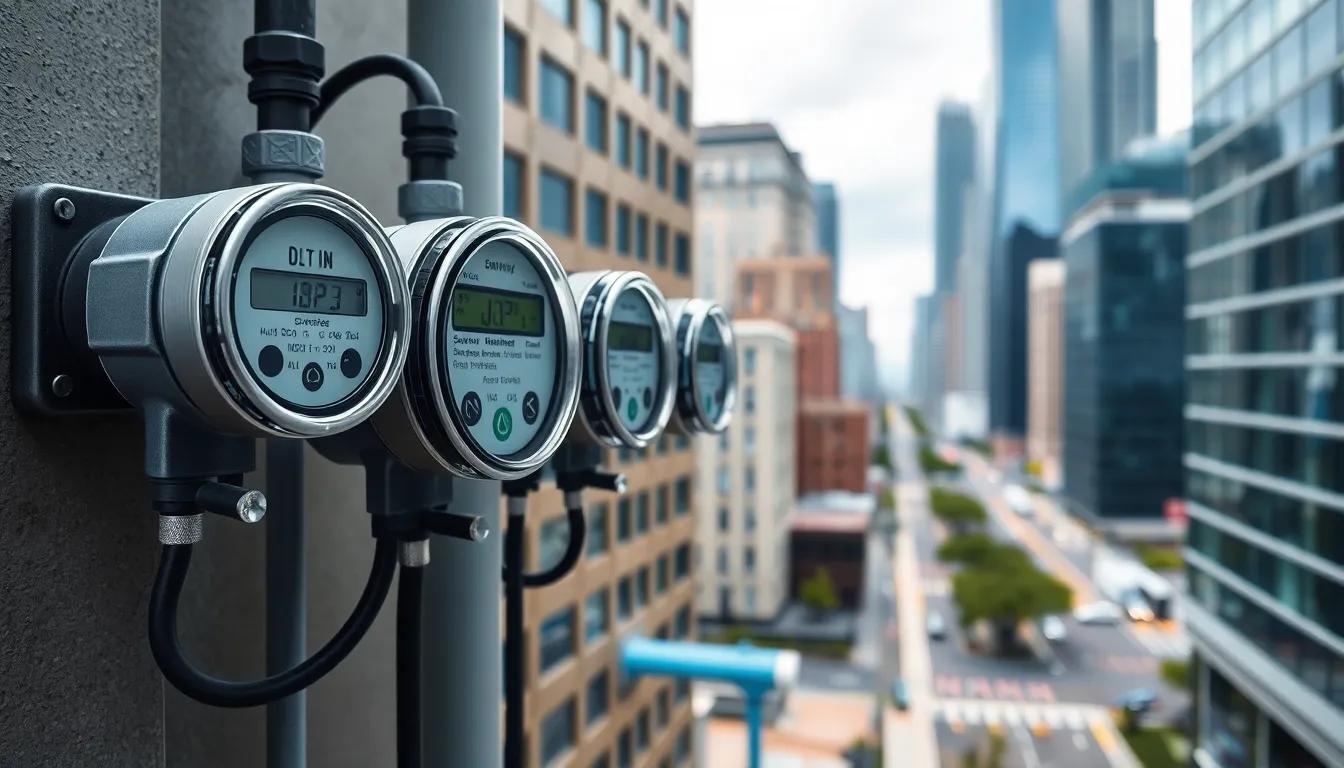Table of Contents
ToggleIn a world where everything seems to be getting smarter, why should our water systems lag behind? Enter smart water systems—the tech-savvy solution to managing one of life’s most essential resources. These innovative systems not only keep your water flowing but also ensure it’s clean, efficient, and ready for whatever life throws at you.
Imagine a water system that can detect leaks faster than you can say “drip, drip, drop.” With real-time monitoring and data analytics, these systems are like the superheroes of hydration, swooping in to save both your wallet and the environment. So, if you think your old pipes are doing just fine, it might be time to reconsider. After all, who wouldn’t want their water system to be as smart as their smartphone?
Overview of Smart Water Systems
Smart water systems represent a significant advancement in water resource management. These systems employ real-time monitoring to identify leaks swiftly, thus minimizing water loss and conserving resources. Technologies such as Internet of Things (IoT) sensors facilitate this process by collecting data on water usage patterns.
Data analytics play a crucial role, enabling operators to analyze trends and optimize their responses. Water utility companies leverage these insights to enhance efficiency and service delivery. Notably, many municipalities have already implemented smart systems, leading to a reduction in operational costs.
User-friendly interfaces allow consumers to track their water usage easily. Customers gain the ability to receive notifications about potential leaks or unusual consumption patterns. This proactive approach not only aids in water conservation but also encourages responsible usage among consumers.
Integration with smart home technologies further enhances these systems. For instance, users can connect smart water systems with home automation devices to control water use remotely. Increased connectivity supports comprehensive water management strategies for households and businesses alike.
The environmental benefits of smart water systems are substantial. Efficient management reduces the energy required for water treatment and distribution. Consequently, these systems contribute to lower carbon footprints for communities.
Studies indicate that smart water systems can lead to cost savings of up to 30% for water utilities. These savings arise from reduced leakage and increased operational efficiency. As technology continues to evolve, innovation in smart water systems will likely expand their capabilities, offering even more advantages for users.
Benefits of Smart Water Systems
Smart water systems offer numerous advantages that transform water resource management for users and utilities. These benefits improve efficiency, enhance monitoring, and promote responsible water usage.
Improved Water Efficiency
Smart water systems drastically improve water efficiency through real-time data collection. Sensors monitor usage patterns, identify leaks, and track overall consumption. When utilities access this information, they can optimize water distribution, resulting in reduced waste. As a result, municipalities have reported up to 30% cost savings. Efficient usage not only lowers expenses but also conserves vital water resources, crucial for sustainability.
Enhanced Quality Monitoring
Smart water systems enhance water quality monitoring with advanced technologies. Continuous sensors provide instant feedback on chemical balances and contaminants. With this data, utilities can address issues promptly, ensuring safe drinking water for communities. Regular monitoring also aids in regulatory compliance, helping avoid penalties associated with water quality violations. Transparency in quality metrics fosters public trust and encourages responsible consumption behaviors.
Key Technologies in Smart Water Systems
Smart water systems depend on advanced technologies for effective water management, ensuring sustainability and efficiency. Notably, sensors and IoT integration form the backbone of these systems.
Sensors and IoT Integration
Sensors play a critical role in smart water systems. They track real-time data on water usage, pressure, and quality. Various IoT devices send this data to centralized platforms. Through continuous monitoring, potential leaks and inefficiencies are identified promptly. Municipalities benefit significantly, as immediate detection minimizes water loss and reduces operational expenses. Additionally, user-friendly interfaces relay this information to consumers, fostering responsible water use. As technology advances, integration with smart home devices becomes more seamless, allowing individuals to manage their water consumption remotely.
Data Analytics and AI Applications
Data analytics enhances the functionality of smart water systems. Algorithms process the vast amounts of data collected from sensors. By analyzing usage patterns, water utilities optimize supply and demand effectively. AI applications further refine decision-making processes, predicting potential issues before they arise. For instance, predictive maintenance minimizes service interruptions and increases system reliability. Significant cost savings emerge from these optimizations, with studies showing reductions in operational costs by as much as 30%. Overall, combining analytics with AI empowers municipalities to improve water quality and enhance service delivery efficiently.
Challenges in Implementing Smart Water Systems
Implementing smart water systems presents several significant challenges that municipalities must overcome. From infrastructure needs to data privacy issues, each aspect requires careful consideration.
Infrastructure and Investment Needs
Upgrading existing infrastructure proves costly and complex. Many municipalities face outdated piping systems incompatible with smart technologies. Funding for advanced sensors and data management software may strain local budgets. Prioritizing infrastructure development often necessitates long-term planning and collaboration among stakeholders. Innovations in financing, such as public-private partnerships, could provide alternative funding routes. Additionally, municipalities must consider ongoing maintenance costs to ensure the systems remain efficient over time. Investing in staff training also becomes essential to manage new technologies effectively.
Data Privacy Concerns
Data privacy remains a pressing issue for smart water systems. Collecting real-time usage data raises concerns about sensitive information exposure. Protecting user data from potential breaches is crucial for maintaining public trust. Compliance with data protection regulations, such as GDPR, adds another layer of complexity. Stakeholders must implement robust cybersecurity measures to safeguard personal information. Additionally, transparency in data usage becomes important, encouraging users to engage with the systems confidently. Addressing these privacy concerns effectively enhances the overall acceptance and success of smart water systems.
Future Trends in Smart Water Systems
Emerging trends signify a transformative era for smart water systems. Increased integration with artificial intelligence offers utilities powerful capabilities for predictive maintenance. Advanced analytics will enable the identification of usage patterns, allowing for targeted conservation efforts. Enhanced data accessibility promotes user engagement, leading to more proactive water management practices among consumers.
Automation continues to evolve, streamlining operations. Automation technologies will facilitate real-time monitoring and rapid response to system issues. This capability significantly reduces downtime and potential water loss, driving operational efficiency. As municipalities respond to climate variability, resilience is becoming essential, placing smart water systems at the forefront of sustainable solutions.
Collaboration among stakeholders is paramount. Partnerships between technology providers and water utilities foster innovation and funding opportunities. These alliances drive the development of next-generation sensors, which will enhance detection capabilities for leaks and quality monitoring. Such advancements pave the way for improved regulatory compliance and public health outcomes.
User-centric designs are gaining traction as well. Engaging user interfaces allow consumers to visualize their water consumption and participate in conservation initiatives. Smart applications linked to home automation systems will empower users to control their water usage remotely. Increased awareness translates into responsible consumption habits, fostering community-wide water conservation efforts.
Moreover, cybersecurity will play a vital role as adoption scales. As real-time data collection proliferates, securing sensitive user information becomes crucial. Robust measures must ensure compliance with regulations, thus maintaining public trust. These focus areas underscore the ongoing evolution and significance of smart water systems in addressing global water challenges.
Conclusion
Smart water systems are revolutionizing the way municipalities manage water resources. By leveraging advanced technologies like IoT sensors and data analytics, these systems enhance efficiency and promote responsible usage. The integration of smart technologies not only reduces operational costs but also significantly benefits the environment.
As communities embrace these innovations, they can expect improved water quality and service delivery. The ongoing evolution of smart water systems will continue to address pressing global water challenges. With a focus on user engagement and data security, the future of water management looks promising.









